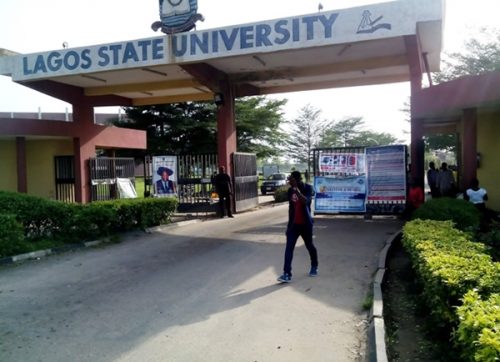The Lagos State University (LASU) has been plunged into another period of disruption as its staff unions embarked on an indefinite strike, effective July 31, 2025. This industrial action, orchestrated by the Joint Action Committee (JAC) of the university’s staff unions, threatens to derail the academic calendar, particularly the second-semester examinations scheduled to commence the following week. The JAC, comprising the Academic Staff Union of Universities (ASUU-LASU), the Senior Staff Association of Nigerian Universities (SSANU-LASU), the Non-Academic Staff Union (NASU-LASU), and the National Association of Academic Technologists (NAAT-LASU), issued a letter to the Vice-Chancellor, Professor Ibiyemi Olatunji-Bello, outlining their decision. The strike stems from unresolved issues with the university management, prompting the unions to take drastic action. The indefinite nature of the strike adds another layer of uncertainty to the situation, with no clear end in sight unless the management addresses the unions’ demands.
The strike notice, signed by the leadership of the respective unions, directed all staff members across the university’s campuses, including the Lagos State University College of Medicine (LASUCOM) and the Epe campus, to immediately withdraw their services and vacate their duty posts. This comprehensive withdrawal of services across all facets of the university operations is aimed at maximizing the impact of the strike and pressuring the management to come to the negotiating table. The unions have made it clear that the strike will continue indefinitely until their demands are met by the relevant authorities, setting the stage for a potentially prolonged standoff. The timing of the strike is particularly disruptive, coinciding with the commencement of the second-semester examinations, leaving students in a state of limbo and uncertainty regarding their academic progress.
The decision to embark on an indefinite strike underscores the seriousness of the issues at hand and the frustration felt by the university staff. The JAC’s resolute stance suggests that the unresolved grievances are substantial and have likely been festering for some time. The lack of specific details about the demands in the initial strike announcement leaves room for speculation and raises questions about the transparency of the negotiation process. While the unions have stated their willingness to engage with the management to resolve the issues, the indefinite nature of the strike indicates a lack of confidence in the management’s responsiveness and commitment to addressing their concerns. The timing of the strike, just days before the start of examinations, further suggests a calculated move to exert maximum pressure on the university administration.
The disruption caused by the strike extends beyond the immediate inconvenience to students preparing for their exams. The prolonged closure of the university can have far-reaching consequences, impacting research activities, administrative functions, and the overall academic environment. The potential for academic disruption and the uncertainty surrounding the resumption of normal activities are likely to create anxiety and frustration among students, faculty, and other stakeholders. The indefinite nature of the strike also raises concerns about the potential for a protracted stalemate, further exacerbating the existing tensions and potentially damaging the university’s reputation.
The situation at LASU highlights the recurring challenges faced by Nigerian universities, including inadequate funding, poor working conditions, and strained relationships between management and staff unions. These systemic issues often lead to disruptions in the academic calendar, impacting the quality of education and the overall development of the university system. The strike at LASU is not an isolated incident but rather a reflection of the broader challenges plaguing the Nigerian education sector. Addressing these underlying issues requires a concerted effort from all stakeholders, including the government, university management, and staff unions, to create a more conducive and sustainable environment for teaching and learning.
The LASU strike underscores the urgent need for dialogue and compromise to resolve the impasse and minimize the disruption to the academic calendar. Open communication and a willingness to address the legitimate concerns of the staff unions are crucial for finding a sustainable solution. The university management should prioritize engaging in meaningful negotiations with the JAC to address the underlying issues that led to the strike. A transparent and inclusive process involving all stakeholders is essential for achieving a resolution that benefits the entire university community. The long-term stability and success of LASU depend on fostering a positive and collaborative relationship between the management and staff unions, ensuring that the university can fulfill its mandate of providing quality education and contributing to national development.


